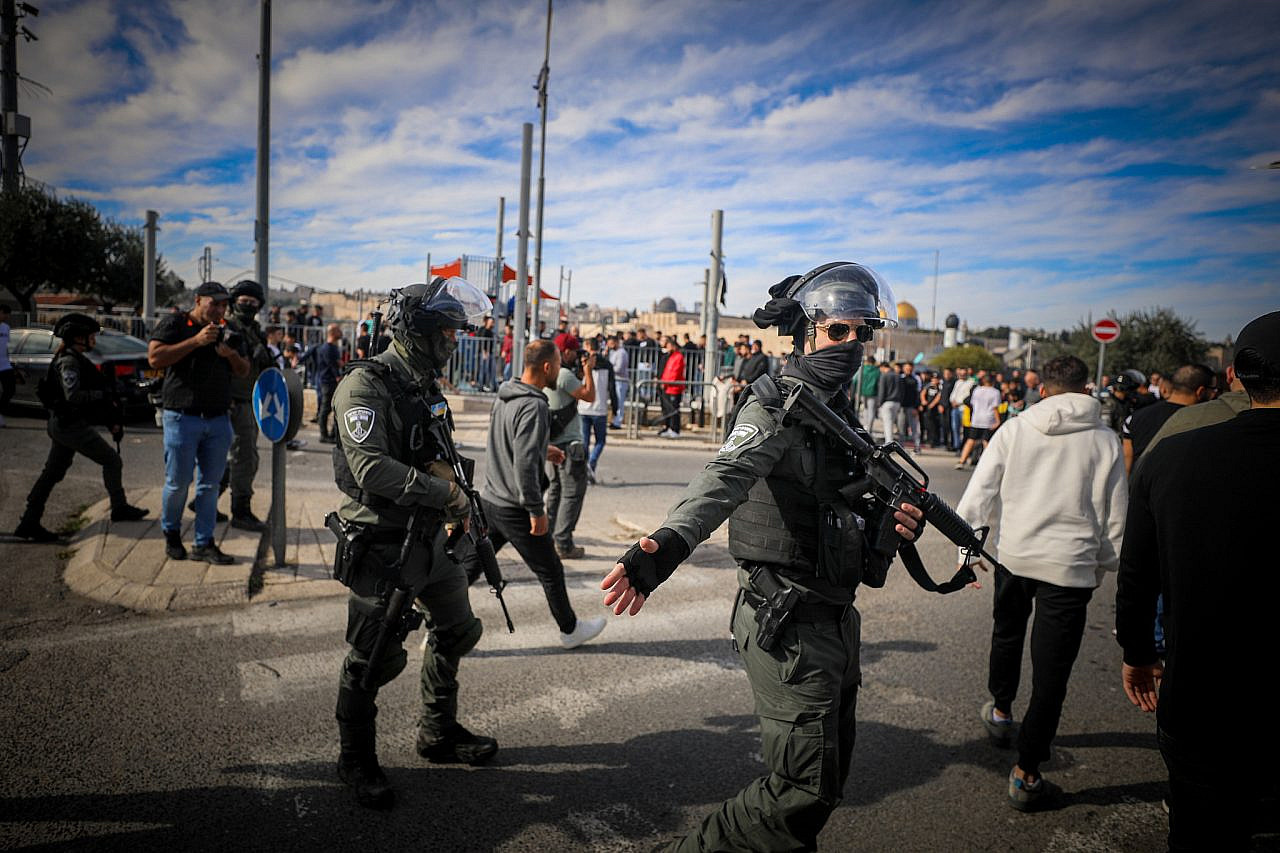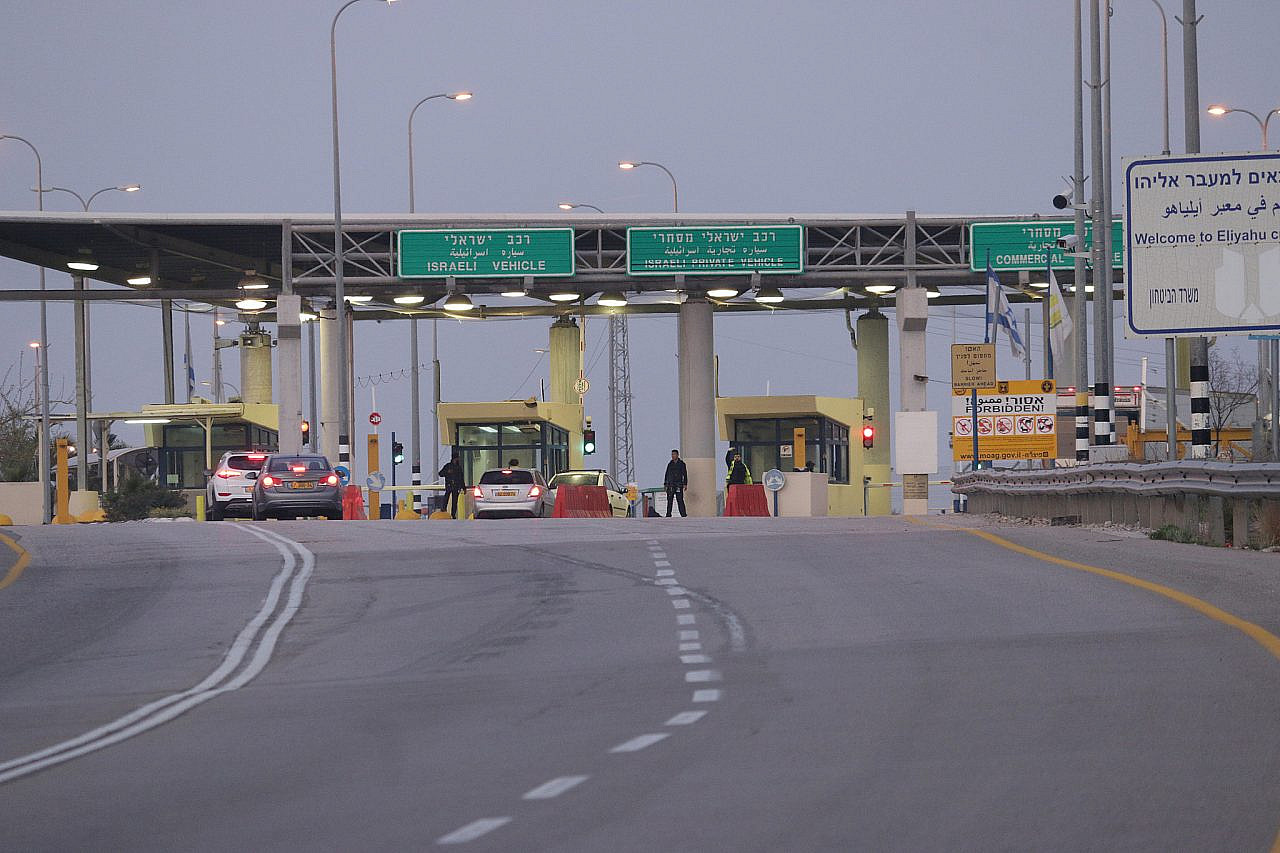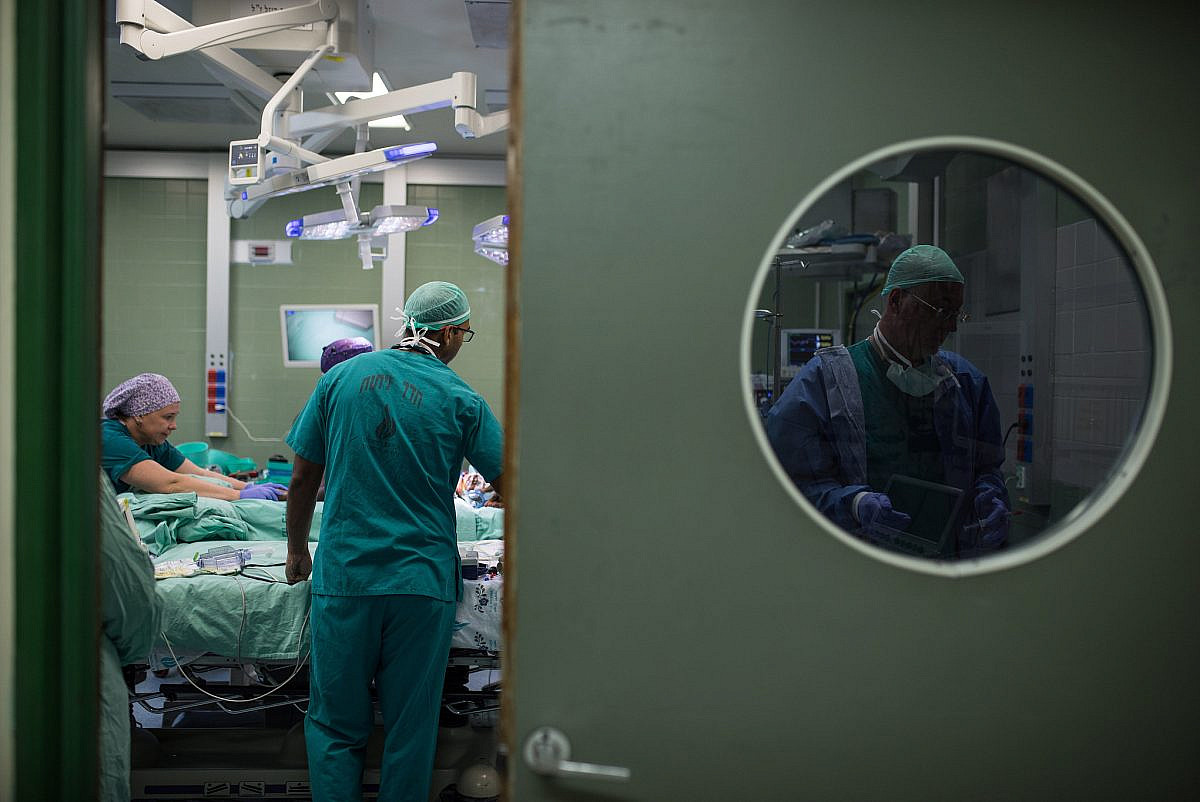H., who cannot be named for legal reasons, is a 31-year-old Palestinian medical student from the occupied West Bank. Until a month ago, she had been doing her residency in one of Israel’s largest hospitals. But after police arrested H. at her workplace and interrogated her, she learned that her permit to enter Israel had been revoked, meaning that she would not continue her residency.
Her alleged crime? Blocking colleagues on social media.
Since the Hamas-led October 7 attack, Israeli authorities have conducted a major crackdown on freedom of expression, usually in relation to social media posts. Dozens of Palestinian citizens of Israel and residents of Jerusalem have been arrested for voicing opposition to the war, while Israel’s academic institutions have suspended and dismissed students and faculty members alike for similar offenses. The Knesset also voted to amend Israel’s Counterterrorism Law, enabling unprecedented surveillance against Palestinians.
Yet the case of H. is one of the most absurd of all. On Oct. 23, police officers raided the hospital ward where H. is a resident and arrested her. They took her to a police station for interrogation, during which they did not ask H. about her political opinions, but rather about unsubstantiated claims that she had blocked her Jewish-Israeli colleagues from her social media profiles.
“They asked me why I didn’t approve [friend requests], and why I deleted and blocked people on Facebook and Instagram,” she told +972. “They asked, ‘Why did you block your friends?’ and I replied that I didn’t block anyone. I deleted my Facebook and Instagram accounts even before the war, in August or September, and then reactivated them at the end of September or October.”
Although there is obviously no prohibition, legal or otherwise, on blocking or removing people on social media, the police confiscated H.’s cellphone during the interrogation and have yet to return it. At the end of the interrogation, H. was released, not having had the opportunity to appear before a judge. Only later on did she discover the consequences.

Following her interrogation, the Association for Civil Rights in Israel (ACRI) sent a letter to the police, stating that “it was not made clear to Dr. H. [during the interrogation] what she is suspected of. She was neither warned nor given an opportunity to consult an attorney.”
The letter further stated that the “police officers who conducted the interrogation did not point to a legal source that indicates any suspicion of committing a crime, whether it is blocking or the deletion of accounts that were managed in her name. The investigators did not ask questions concerning any suspected crimes … When she asked why she was taken for questioning, she was told that the only reason was that she blocked her coworkers.”
H. was released without any conditions or hearing and returned to her job at the hospital. “I continued working for about three weeks after the interrogation, and I encountered no problems,” she said. “After that, I returned to the West Bank for a short vacation, which I coordinated with my manager.”
On Nov. 15, H. received a message from her employer that her entry permit was canceled, and when she arrived at the Eliyahu Crossing from the West Bank city of Qalqilya to re-enter Israel, she was told that she did not have the necessary permit.
H. emphasized that the hospital told her there was no problem from their side, which was why she was able to continue working there for three weeks after the arrest. “My relations with my colleagues were good,” she told +972. “When the police took me from work, it was very difficult. Everyone saw and did not know what I had done.” H. does not know who filed the complaint against her, and whether or not it was someone from her team.
In a letter sent to the police, ACRI demanded that the case be closed in order to allow H. to return to work. “The continuation of the investigation will cause serious and irreversible damage to Dr. H., who is in the midst of a professional internship,” the letter said. “Therefore, and in light of the lack of grounds for criminal proceedings, we request the investigation be closed immediately for lack of guilt.”

Reut Shaar, an ACRI attorney who represents H., told +972 that this is “one of the extreme cases of harassment and political persecution, when the police reverses the correct order of things and places the burden of proof on the interrogatee to prove she did not publish prohibited content, when there is no evidence against her. In recent weeks, we have come across dozens of cases of political persecution in workplaces and educational institutions. The police collaborated with the trend, through arrests and opening investigative procedures, even when there is no suspicion of committing a crime.”
According to Shaar, even without being prosecuted, the proceedings thus far have caused enormous damage: “The arrest and the investigation themselves are a severe violation of the rights of the interrogatee — the right to a good name, to privacy, to freedom of employment, and to freedom of expression. In this case, she lost her job and the seniority she had gained through great effort and hard work. Although she was released from custody without conditions, without being put on trial, and without any further action being taken against her, the damage has been done. This is a method of silencing and intimidation for all intents and purposes.”
The Palestinian Knesset member Ahmad Tibi referred to H.’s case in a speech on Thursday, asking: “Can an Arab not block a Jew? Does blocking [constitute] support for terrorism?”
Most read on +972
In a statement to +972, a police spokesperson did not deny any of the aforementioned claims, saying that: “Upon receiving the complaint, an investigation was opened, during which a variety of investigative actions were carried out, including collecting a statement from the suspect with the aim of finding the truth.”
The police did not answer our questions about what claims were investigated, whether blocking people on social media platforms can constitute suspicion that a crime has been committed, and whether the police officially closed the case.
+972 also reached out to the Civil Administration — the arm of Israel’s military government that governs the 2.8 million Palestinians in the occupied West Bank and which issues entry permits to Palestinians like H. — but we have yet to receive a response; it will be published here if and when it is received.
A version of this article was first published in Hebrew on Local Call. Read it here.






